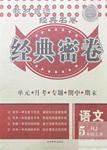题目内容
10. A heavy snow____ a harvest year.
| A.expects | B.wishes | C.promises | D.Hopes |
C
解析

 同步学典一课多练系列答案
同步学典一课多练系列答案 经典密卷系列答案
经典密卷系列答案 金牌课堂练系列答案
金牌课堂练系列答案 三新快车金牌周周练系列答案
三新快车金牌周周练系列答案If you want to teach your children how to say sorry, you must be good at saying it yourself, especially to your own children. But how you say it can be quite tricky.
If you say to your children “I’m sorry I got angry with you, but …” what follows that “but” can render the apology ineffective: “I had a bad day” or “your noise was giving me a headache ” leaves the person who has been injured feeling that he should be apologizing for his bad behavior in expecting an apology.
Another method by which people appear to apologize without actually doing so is to say “I’m sorry you’re upset”; this suggests that you are somehow at fault for allowing yourself to get upset by what the other person has done.
Then there is the general, all covering apology, which avoids the necessity of identifying a specific act that was particularly hurtful or insulting, and which the person who is apologizing should promise never to do again. Saying “I’m useless as a parent” does not commit a person to any specific improvement.
These pseudo-apologies are used by people who believe saying sorry shows weakness. Parents who wish to teach their children to apologize should see it as a sign of strength, and therefore not resort to these pseudo-apologies.
But even when presented with examples of genuine contrition, children still need help to become aware of the complexities of saying sorry. A three-year-old might need help in understanding that other children feel pain just as he does, and that hitting a playmate over the head with a heavy toy requires an apology. A six-year-old might need reminding that spoiling other children’s expectations can require an apology. A 12-year-old might need to be shown that raiding the biscuit tin without asking permission is acceptable, but that borrowing a parent’s clothes without permission is not.
【小题1】According to the author, saying “I’m sorry you’re upset” most probably means “_______”.
| A.You have good reason to get upset |
| B.I’m aware you’re upset, but I’m not to blame |
| C.I apologize for hurting your feelings |
| D.I’m at fault for making you upset |
| A.the complexities involved should be ignored |
| B.their ages should be taken into account |
| C.parents need to set them a good example |
| D.parents should be patient and tolerant |
| A.a social issue calling for immediate attention |
| B.not necessary among family members |
| C.a sign of social progress |
| D.not as simple as it seems |
A student walks into his first class and realizes he forgot all about the midterm exam. He knows he needs to bring his grades up, and getting a zero will make it nearly impossible. He quickly jots down some notes and shoves them under his lap hoping it will help him pass. Cheating is a major concern in all academic environments. Students are creating new and more outrageous(令人吃惊的) ways of cheating every day; some claim that certain accounts of cheating can be justified, but overall it can always be prevented.
Cheating has been around forever, and millions of ways to cheat have been fashioned. Copying homework and cheat sheets are some of the most basic ways students in all education levels have cheated. Some students think nothing about writing a few answers on their hand, in a gum wrapper, or boldly using a study guide to cheat. Desperate students have even gone as far as to steal the test or scan in bottle wrappers and put answers into the nutrition label. The internet has now become available in almost every location. Computers can be accessed at school, at home, and now even on cell phones. This opens a doorway for even more methods of cheating to be born.
There are countless opinions on whether or not cheating can be justified. The truth is this behavior will always be a matter of opinion with each scenario of cheating. Students often rationalize their cheating by claiming they forgot to look over the material or did not understand what the teacher or professor was saying. Some may counter these arguments by saying that the student could have set reminders or asked the teacher to explain the material before the day of the test. Some other reasons students believe cheating is justified are their heavy workloads and trying to find time for school, sports, friends, and family. This may be true in certain instances, however, all students have these problems, and it is unfair to the students refrain(制止) from cheating when the student who is dishonest receives a better grade. The majority of students who think cheating is acceptable may believe the reason for this is that sometimes students are unaware they are cheating, there is not enough time given for assignments, or that the information is too much for the course.
It may be difficult to accomplish, but cheating can be prevented. Teachers and professors have tried many options to stop cheating. These options can range anywhere from simply spreading test-takers out in a room, to expelling(驱逐) a student, which will most likely hindertheir plans of getting into another college. One simple way to fix the problem is to scold the student when caught. They may be so scared or embarrassed that they never do it again. This is a risky way to prevent cheating in some cases, however, because it can possibly damage self-esteem. Another simple way to avoid cheating is to create many different kinds of the same test. This prohibits students from getting the answers off of a neighbor's test, but students still have the option of using other cheating tactics.
There may be a million ways to cheat and get away with it, but there are few times, if any, that it is justified. Cheating never has to be a necessity and is never worth compromising morals and losing years worth of working towards a degree. This problem is spreading throughout America; with everyone's help, it can be stopped.
【小题1】Which is the best title of this passage?
| A.To cheat or not to cheat | B.Show your opinion on cheating |
| C.Debates on cheating | D.Different ways of cheating |
| A.cheating through the Internet is the most basic way |
| B.students who cheat in exams are cleverer |
| C.millions of ways to cheat have been fashioned |
| D.students cheat in exams to score better grades |
| A.they don’t understand their teachers’ words |
| B.they bury themselves in a lot of homework |
| C.they don’t have enough time to complete the study tasks |
| D.they forget to look over the material |
| A.They may continue to cheat next time. |
| B.They may be hurt mentally. |
| C.They may use other cheating tactics. |
| D.They may get on badly with their teachers. |
| A.It is reasonable | B.It is necessary |
| C.it can be praised | D.It must be prevented |
My grandmother seems to be wrong when she says that good manners will never go out of style.
Several days ago, I tried entering a lift with one of my arms fixed in a bandage(绷带) while carrying a computer bag in the other. Not being fast enough, I was passed by two young people who managed to get into the lift before me. The lift door closed only after I entered. Having already pressed their wanted floor button, the young people waited impatiently for me to press the button for where I was going. If they had decided to help, we could have moved much faster. But they had not. So I did my best and pressed the button with my arm. The two young people looked very angry with me. I was losing heart.
The memory of this incident has stayed with me because it followed shortly after my building’s watchman refused to help me carry a heavy box full of books. His answer was that he could not carry the books a few meters because it was not his job. However, I remembered myself helping people for so many years carrying boxes, shopping bags, or pushing wheelchairs upon the request of a stranger in need or when my conscience(良心) called on me. "Oh, this young generation, they have no manners, ”my grandmother would say. The idea of good manners refers to the considering of other people’s feelings. We need more and more people to have good manners. Good manners should be-come part of our lives.
【小题1】The author believes that ________.
| A.good manners will never go out of style |
| B.her grandmother is right |
| C.good manners are disappearing little by little |
| D.it never rains, but it pours |
| A.Excited. | B.Angry. | C.Sad. | D.Confident. |
| A.the box was full of books |
| B.the box was too heavy |
| C.the author was a stranger |
| D.he thought it was not his job |
| A.always offers help to people in need |
| B.always has difficulty carrying things |
| C.has a better memory than anyone else |
| D.agreed with her grandmother at first |
 16.A. cry B.
rest C.
laugh D.
lie
16.A. cry B.
rest C.
laugh D.
lie